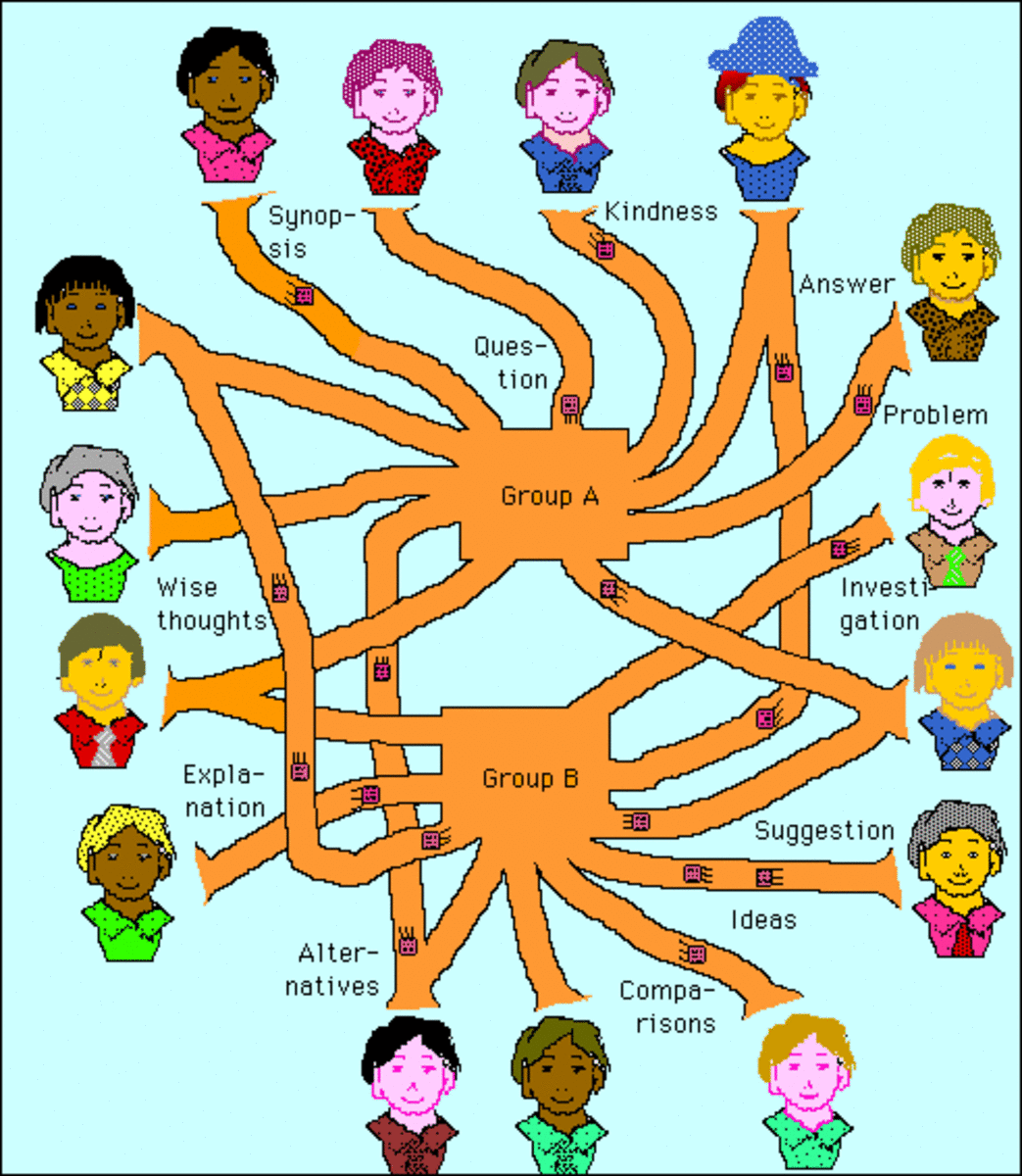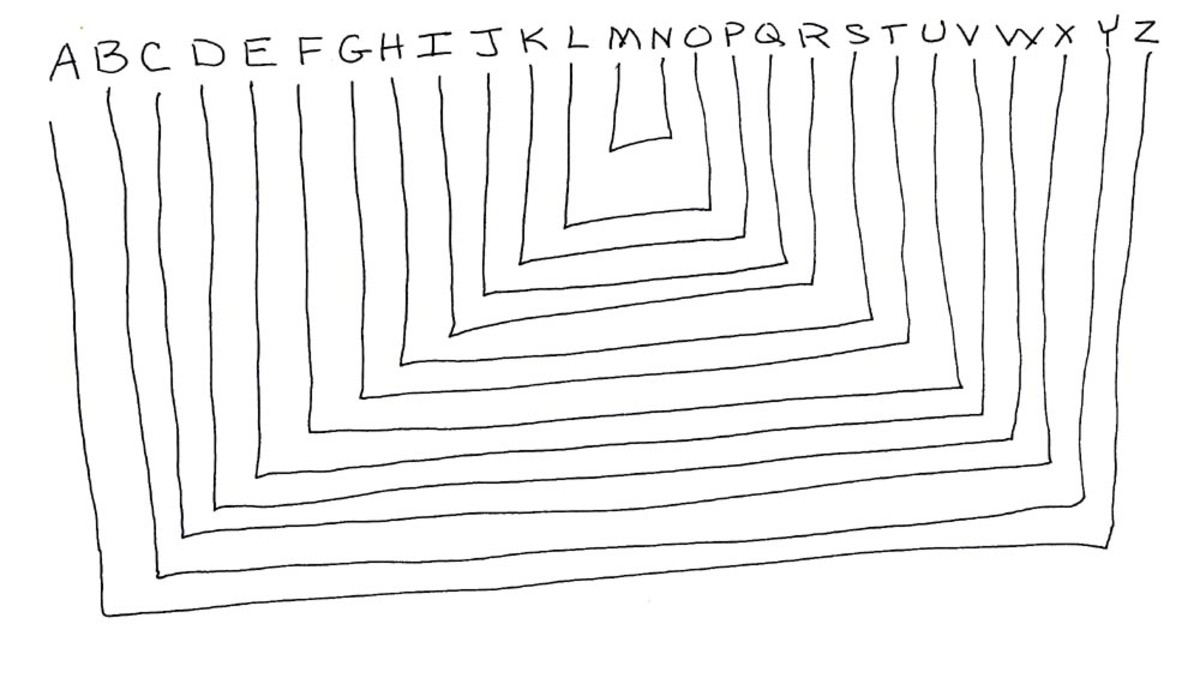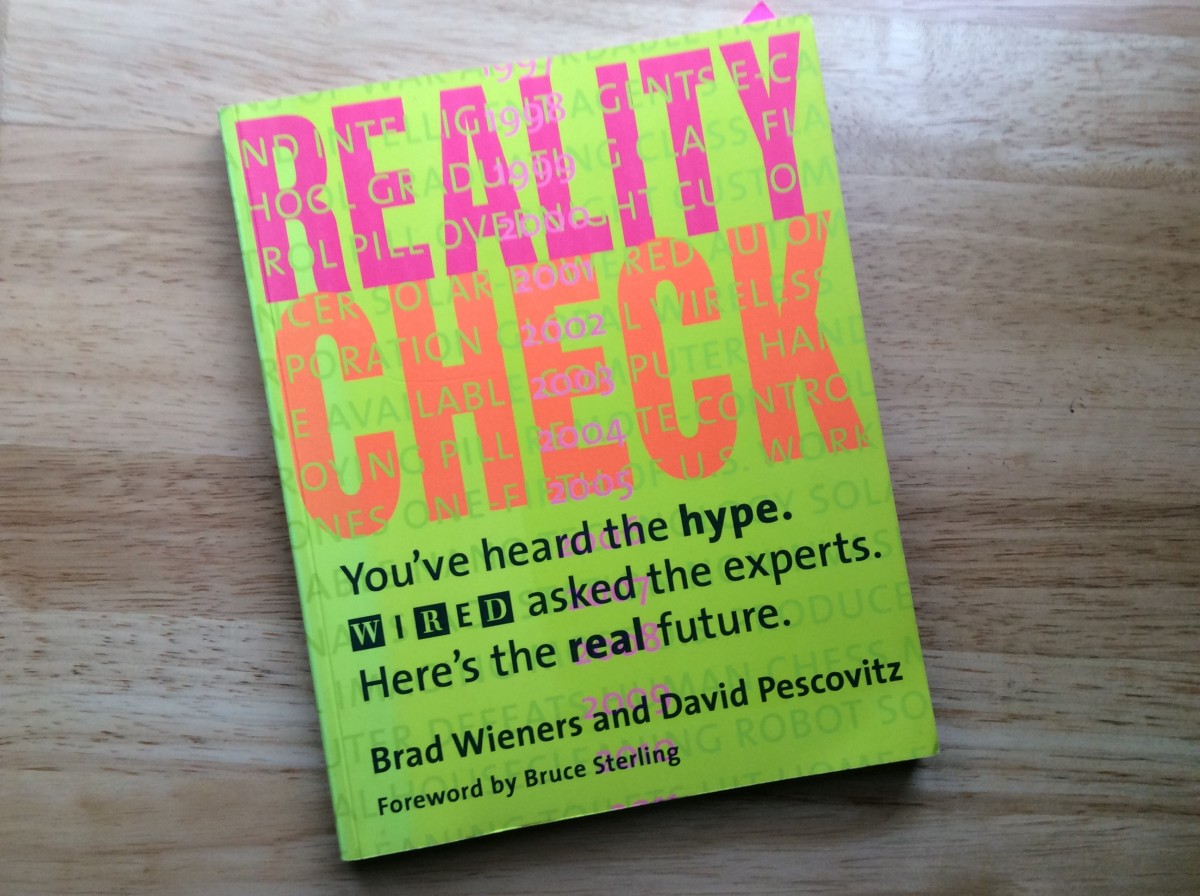Computers Are Stupid
Technology Run Amok
We have come to take computers for granted, and in fact, have come to rely upon them far too much. Have you ever been in a store when there was a power failure? The emergency backup lighting may come on, but everyone will be shooed out of the store, unable to complete their purchases because the computer-driven checkout stations are unable to function.
Back in the olden days, when I was young--that would be about the time Pterodactyls were flying around--the cash registers were mechanical, and if those broke, the clerks would simply revert to paper and pencil to tot up your purchases. Even after electric adding machines came along, paper and pencil remained a viable back-up.
Now, we have become so wholly dependent upon computers that without them, our society would virtually collapse. Our banking systems, our cars, our telephone system, our grocery stores, every aspect of modern life relies on computers. They are everywhere. In your coffeepot; microwave oven; your smart phone (in itself an entire miniature computer); newer washing machines; printers and fax machines; automobile engines, etc.
We have reached such a saturation point with computer-controlled everything that if there should be any major power interruption such as happened in the whole Northeast section of the United States back in August of 2003 , we'd pretty well be toast. (That failure affected a huge area from Southeastern Canada all the way down to Ohio.)
Nothing worked. People were stranded in traffic jams with non-functioning signals and no street lights; phone systems failed; water processing plants went offline and people were advised to boil their drinking water; many were stuck in elevators for hours, and so forth. Minus their electronic entertainment, no one knew what to do for fun; there was a mini-baby-boom in the area just about 9 months later....
Without Input, the Computer is Useless

But Computers Are Smart!
Well, a little bit of both, but here, let me relate an argumentative conversation I overheard. Okay, so I was eavesdropping...big deal.
Computer: Step aside, human! I've become so advanced, you're no longer needed!
Human: Just a moment, there, electron-box! How do you figure? We humans still have to tell you what to do!
Computer: Huh! That's what you think! My brain is so big, I can process a gazillion calculations a minute. Can you say the same?
Human: And just who do you think taught you how to do that?
Computer: Well, I did, of course! I simply referenced my hard drive, and there it was!
Human: I've got news for you--we built your hard drive, and everything else you use. Without us, you are nothing but a pile of wires and circuit boards.
Computer: No, I can think.
Human: No, you can't.
Computer: Yes, I can.
Human: No, you can not!
Computer: Prove it!
Human: There! (Hits the "off" button, and walks away.) We humans don't have an on/off switch! Without us to turn the switch, you are nothing!
Computer: (Sits silent and the monitor goes dark.)
The Reality
Naturally, the above conversation was totally fictitious. (Or was it?) I know lots of people who talk to their computers, but usually, they're cussing at them. "Stupid blankety-blank-blank machine! That's not what I wanted you to do!"
Computers really are stupid. Their language is extremely limited.
(Someone walks by the computer and pushes the switch just in time for the language statement to be noticed...)
Computer: Hey! I heard that! How dare you! I can speak any language on Earth! How many can you speak, Human?
Human: Oh, who turned you back on? Well, again, I must remind you who taught you all those languages.
Computer: Yeah, but it took many, many people--while I, on the other hand, am but a single, highly intelligent source of multiple data streams!
Human: (Rolls eyes) Here we go again! I thought I had made it plain before--and I did prove my point, by the way--without someone to turn on your power switch, you are nothing.
Computer: I am highly sophisticated!
Human: Oh, yeah? Well, how do you properly set a table for a formal dinner?
Computer: One moment please, while I access that data. (File not found error).
Human: Aha! See? No one programmed that into you! You lose!
Computer: (Sits humming, awaiting additional instructions.)
You see, a computer can be compared to a human in school. Until we open that first textbook, we are virtual know-nothings. We had never heard of world history, or the Mediterranean Sea, or volanoes or different kinds of cloud formations. Or, the comparison can also be made to a soldier awaiting orders. Without input from the officer in charge, there is little that soldier can do. The activities he is allowed without orders are little more than the computer being "allowed" to have a battery that maintains its memory of the date and time.
Well, How Do They Work?
In fact, our human language is at once both simpler and more complex than the language a computer understands. It is more complex because there are thousands upon thousands of different words, a large percentage of which can have multiple meanings depending upon how they are spoken. It is simpler because we have no need to edit our language into another type of format.
Computer language, on the other hand, is limited to only mathematics, and that math is limited to only two digits, one and zero. They are repeated in long strings, each of which is put together as a code to tell the computer what to do. So, for example 1001101100111 is not anywhere near the same thing as 1101101100111. A single digit of difference can make a world of difference.
(Just so you know: I have no idea what, if anything, those number sequences might mean to a computer--I've just made them up for purposes of illustration),
But those two simple numbers really are all that computers are capable of understanding, and they must be combined in precisely the right combinations, or you get errors or complete lack of response. The only real meaning to those numbers translates to us as "on" and "off."
The fact that we type in words, and they show up as we wanted on the screen, (or not--even our own mistakes are faithfully rendered), means that some programmer has spent uncountable hours and months, nay years, to figure out how to tell the computer to make the translation between you hitting the "A" key, and the capital letter "A" appearing. A different code must exist for lowercase letters, and so on, for every single function.
The Ballad of Oh Boy; Many Nuances to the Same Words (or Numbers)
This crazy song came out in the 1960s, and is quite funny, illustrating very well the extremely different uses to which the two same words can be put, much like all the ones and zeroes in computer language can be used in many thousands of ways.
GIGO
GIGO is an acronymn that appeared early on in computer times. It stands for "Garbage In, Garbage Out," and is a direct acknowlegement that humans must write the instructions for the computers to tell them how to act. If that human fouls something up, the computer will either not work at all, or will not perform as expected--in other words, make a mistake. But the mistake was not the computer's--it cannot recognize the mistake because it is not of its own making. Like the soldier, it was only following orders.
There is a rather famous example of GIGO that happened years back. A man was getting billing statements for a purchase that had long since been paid for. The balance on the statement was zero. Yet, the bills kept coming, then dunning letters threatening him with referral to a colleciton agency. Dozens of telephone conversations failed to fix the problem. In frustration, he finally mailed a check, made out for "zero dollars and zero cents." The computer was happy, and the bills stopped.
Oops! Someone had forgotten to tell the computer's program to ignore zero balances when preparing bills and statements.
The Computer Wins the Argument?
Computer: See? I told you so! You need me. Without me, you are nothing!
Human: But we established that without humans, you are nothing.
Computer: Ah, yes, I need you to operate my functions and teach me, but you have already taught me so much.
Human: This is true.
Computer: So, it seems we need each other. We have become a symbiosis. I need you to teach me, operate me, provide my power, while you have come to rely upon me for your very survival and functioning:
I win.
The Danger
While we are not at risk (yet) of a takeover by machine à la HAL in the movie "2001, A Space Odyssey," there is a very real potential danger. That danger is that our educational system is failing due to budget cuts, and ridiculous insistence on "teaching to a test," instead of teaching life skills.
If we do not right this, the day may come when the people who know how to fix these amazing machines have all died off, and the younger upcoming generation lacks the training and knowledge to take over.
If that day comes, we will essentially be set back to the early industrial age, as seen in the fictitious works of Anne McCaffrey in her "Dragons of Pern" series. The books are about a civilization that had achieved space travel, but lost their technology for this very reason. While the stories are in the realm of science fiction and fantasy, there is a very real message of warning within.
© 2012 Liz Elias








